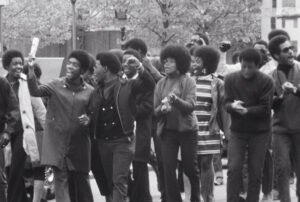August 2, 2016; The Washington Post
Washington D.C. is overrun with nonprofits, but just the universities alone, including Georgetown University, George Washington University, Howard University, and American University, control more than $10 billion worth of city real estate among them—and if they were paying taxes they would be contributing $111 million a year to the District.
But they pay nothing—not even as voluntary payments in lieu of taxes, or PILOTS. That brings the question home quite starkly, as lawmakers prepare for congressional hearings on the citizenship behaviors of universities with more than $1 billion in their endowments. There are 56 of them, and legislators want to know what use they put those endowments to, the size of their tax-exempt property holdings, and whether they make any voluntary payments in PILOT form to local government.
GWU and Georgetown both fit into the category, and neither makes a voluntary payment. Together, their property, if taxed, would be contributing $48 million. The District has made no demand, though it has been toying with the notion for going on fifty years.
The universities make the usual argument: “We generate talent for the city, research, scholars, scholarship and money,” said Stephen J. Trachtenberg, former president of GWU. “Students spend. Faculty earn and pay taxes. Parents visit. We buy goods and services. [The financial] impact is positive and profound.”
But this essential overriding “goodness” is less than convincing to others. “A great city deserves great universities, but at the same time, the city has bills to pay,” said Natwar M. Gandhi, a former chief financial officer for the District. “The city has profound needs and has been financially responsible, but that does not negate the need for imposing a PILOT. It is a question of fairness, a question of equity.”
Sign up for our free newsletters
Subscribe to NPQ's newsletters to have our top stories delivered directly to your inbox.
By signing up, you agree to our privacy policy and terms of use, and to receive messages from NPQ and our partners.
The Lincoln Institute of Land Policy reports that 218 municipalities in 28 states collect PILOT payments, with 68 percent of these coming from colleges and universities. The city of Boston received about $28 million in PILOT contributions last year from local hospitals, museums, and colleges—any nonprofit with tax-exempt organizations that own property valued in excess of $15 million. But what is actually paid is not only less than what has been negotiated, it is also far less than what the city would receive were it to tax the institutions on their property.
For the District, this $111 million pales next to the lost revenue resulting from federally owned properties that could have been producing $891 million in property taxes on 2,855 buildings were they not tax exempt. Instead of property taxes from federally owned land and buildings, the D.C. government receives annual appropriations set almost unilaterally by Congress, usually with regulatory strings attached.
The district has approached the problem in a few different ways. D.C. Councilmember Mary M. Cheh (D-Ward 3) proposed charging every university a $100 fee per student per semester, later reduced to $25 per student; but neither proposal bore fruit as the universities countered such proposals with a big “H___ no!”
The D.C. Tax Revision Commission wrote that it was “concerned about the opaque and arbitrary nature” of PILOT programs and “anticipated unnecessary administrative burdens for both nonprofit organizations and the D.C. Office of Tax and Revenue.”
None of this is likely to make legislators think that the schools closest to the rooms in which they will meet to consider the use of endowments are attempting to do their part—and today’s story in the Washington Post will surely drive that point home—Ruth McCambridge













